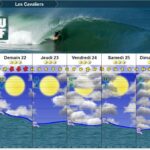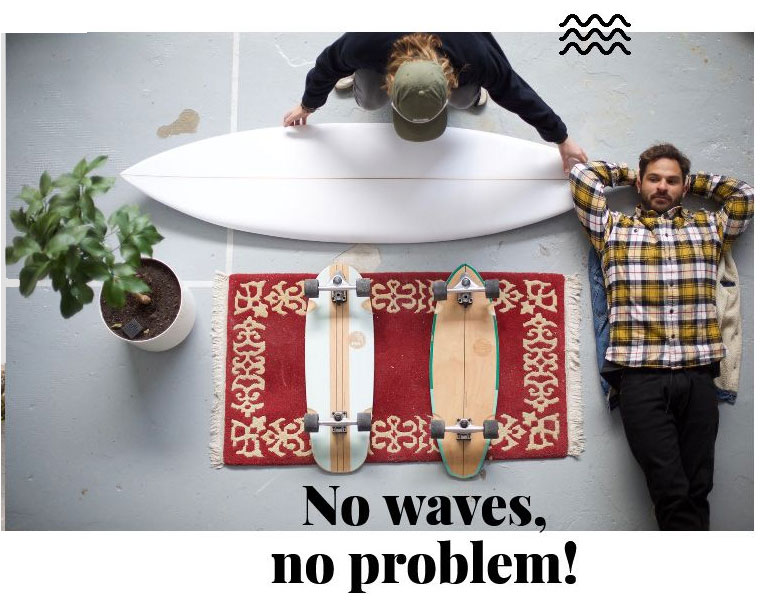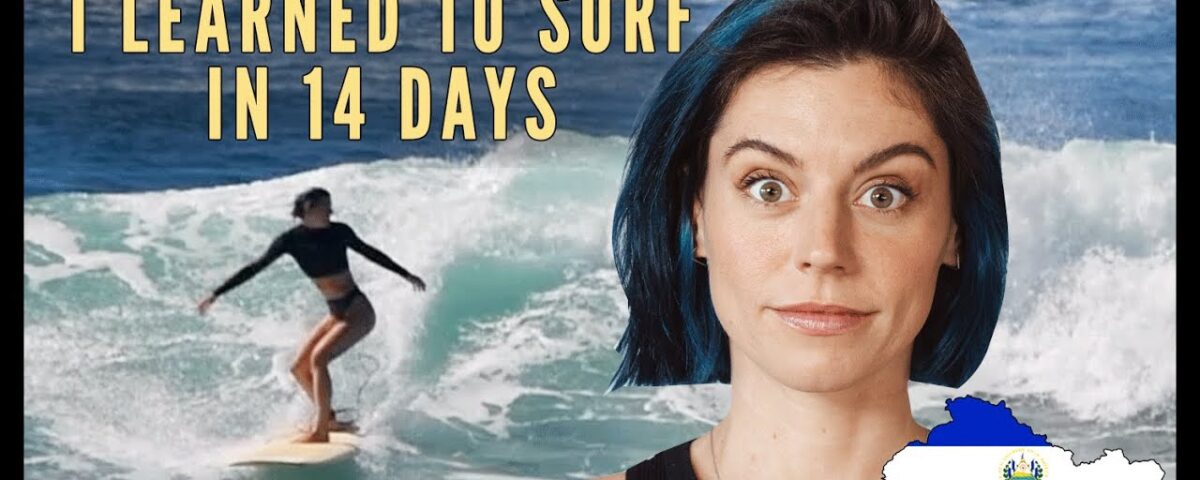
Surfing weather: How can you tell when there will be waves?

How can I improve my surfing at home?
Sorelle Amore, just 31, had her first surfing experience and after 14 days, she managed to surf some real waves! Here are a few tips she shares:
Why did I take up surfing?
Learning to surf has to be something you want! There are many reasons to take up surfing, so if you’re still having trouble convincing yourself to pick up a board and get in the water, here are a few arguments to help you make up your mind!
- The sensations! You’ve probably read this before, but the sensations you get from surfing can be compared to very little else! You must never forget that it’s a sport where you’re the one who’s working, you’re looking for the wave, you’re paddling to catch it and you’re concentrating to stay on top of it! Once you’ve ticked those three boxes, it’s pure, unadulterated bliss – you never want it to end!
- A natural sport! Surfing is one of the sports that brings us closest to nature, and yes, it’s when you’re in perfect harmony with the waves that you get the most pleasure and enjoyment out of the sport! Doing sport in the open air (sea), in magnificent places, that’s what awaits you if you take up this sport!
- Money! A wetsuit, a surfboard, a bit of wax and sun cream for the more careful, and you can surf to your heart’s content pretty much all year round (in winter it’s best to opt for a slightly thicker wetsuit). It’s an inexpensive sport, and what you need most is waves, and that’s just as well – access to surf spots has never been and never will be!
- Surpassing yourself! Surfing can be a scary sport at first, but you have to push yourself to get into the waves, put aside your apprehension and try out new things on the wave… With surfing, you’ll never rest on your laurels, there’s always a way to find new ways of surpassing yourself!
My advice for learning to surf quickly:
- Visualising objectives
Preparation goes hand in hand with all the activities you do, whether hiking, mountain biking or skiing, all of which require some form of visualisation. Imagining possible scenarios helps you to feel at ease in situations you might otherwise dread!
- Learning to stay calm – breath work
Breathwork workshops go hand in hand with all the other elements: keeping calm, increasing your lung capacity, relaxing or getting ready, breathwork is useful in all cases!
- Yoga and stretching
to stretch, relax and focus on yourself, whether before your surf lesson or your session on your own, or even afterwards to recover in an active way! Muscular awakening…
- Swim and get fit – swimfit training
Swimming training can give you a considerable advantage when it comes to surfing! First of all, you need to be in good physical shape: the more you’re used to doing sport, rowing and swimming, the more comfortable you’ll feel in the water, and the longer you’ll be able to make your sessions last – as we all know, practice makes perfect!
- Body and movement control: surfskate and body control
Controlling your body is essential for success in board sports, and a large part of the sport is based on balance. The more comfortable you are with your body, the easier the movements required in surfing will seem… obviously some postures are unknown to us in surfing, and it’s by having full control of your limbs that you can overcome this unknown.
- Straightening up on the board – pop-up
Movements are essential in this sport and getting them right really makes learning easier! If you’re learning to surf, start by mastering the pop-up, the moment when you stand up on your board. The more natural and fluid this movement is, the more clean waves you’ll catch, because the first time you stand up on your board determines how you’ll ride your wave!





